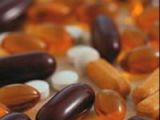We hear nutritionists, medical experts and even people around us talking all the time about the essential minerals which are crucial for our health. We become aware that we have to eat foods - mostly fruits and vegetables - rich in minerals, but most of us do not know exactly how these minerals work upon our health, why they are needed by our body and why we cannot live without them.
Moreover, sometimes even the ones that urge us to consume aliments rich in minerals or to take mineral supplements do not know when and how these minerals should be taken.
However, it is high time we found out that besides vitamins, minerals are more than a mere source of energy and wellbeing; they are a pure and extremely valuable source of health. The main minerals that keep our health intact and prevent us from getting ill with a wide range of diseases are: Calcium, Magnesium, Potassium and Iron. They all strengthen the natural defense shield of our organism, namely our immune system. Moreover, they have tones of other benefits on the main organs and functions of our body.
Calcium quantity to be found in an adult's body is approx 1, 5 kilos. Calcium is a very potent mineral, fulfilling different tasks in our bodies. The most important of its functions relate to: mineralization of the bone tissue (bones and teeth), maintaining the cardiac rhythm, coagulating the blood, regulating the acid-basic equilibrium.
Calcium intake is very beneficial for patients that suffer from acute or chronic convulsions, osteoporosis, concentration disorders, headaches, allergies etc.
Calcium deficiency leads to anemia, osteoporosis, dental cavities, irregular menses, severe headaches, sexual problems (loss of libido and sexual appetite, erectile dysfunctions etc.), emotional disorders (stress, anxiety, chronic depression), sleep disorders (insomnia) and many other dysfunctions.
Calcium is highly present in milk and dairy products (yoghurt, cheese), beans, nuts, peanuts, olives, egg yolk. In smaller quantities, it is found in meat, vegetables (parsley, peas, carrots, kohlrabi, celery, lettuce, radish, scallion, but not in spinach), soy beans and all soy products. Calcium is also present in fruits, bread and fish.
Too much calcium in the blood leads to several disorders or, more severely, to lethargy, confusion and even coma. This can happen to patients that take high amounts of calcium supplements and alkaline substances in the same time (antacid tablets - against gastritis and ulcer symptoms.)
Make sure not to combine Calcium supplements with Iron ones. Avoid taking them at the same time, because Calcium will neutralize Iron effects.
Magnesium is found in whole cereals (corn, wheat, oat, barley, rye), nuts, peanuts, figs, almonds, apples, green vegetables, milk, eggs, chocolate etc. Magnesium supplements are extremely beneficial for maintaining our heart healthy, lowering high cholesterol levels in the blood, strengthening the bones structure. Magnesium intake is also recommended for pregnant women or those who are at the risk of arthritis. It also helps the body absorb other vital minerals, like Calcium and Potassium.
Magnesium deficiency leads to allergies, low immunity to infections, nails, hair and teeth fragility, migraines, loss of appetite, high blood pressure, fatigue, nausea, vomiting, emotional disorders etc.
Usually, Magnesium is very well assimilated by our body when it is associated with B6 vitamin. This is why it is essential that we eat cereals for breakfast, as this natural food is rich both in Magnesium and B complex. Magnesium assimilation is also prevented by the intake of large amounts of meat and alcohol drinking. Alcohol eliminates Magnesium from our organism and for this reason alcohol rehab programs use Magnesium supplements to fill the addicts' bodies with the nutritive mineral.
Potassium regulates blood pressure by lowering it, prevents strokes, cardiovascular diseases and it enhances nerve functions by providing cells with nutrients and energizing the whole body. Potassium also helps eliminating wastes from our body and is a key compound in the detoxifying process. It is much recommended in rheumatic and arthritic disorders, migraines, headaches and convulsions, muscle disorders etc.
The following natural foods are overloaded with Potassium and should be eaten on a daily basis: potatoes, sunflower seeds, garlic, tomatoes, fish, cereals, fruits (nuts, avocados, apricots, grapefruits, orange, apples, bananas, and grapes), milk and dairy products, tea and coffee. Potassium can also be found in herbs such as catnip, nettle, plantain, sage, horsetail, skullcap etc.
Iron is essential for the red blood cells forming and oxygen carrying to the tissues. Iron as a nutritive mineral boosts energy in our bodies, makes us active and provides us with stamina. Iron is tightly linked to the hemoglobin, which transports oxygen from the lungs to all body cells and is also part of key enzyme systems for energy production and metabolism.
Iron also strengthens and protects all the organs within our body and is crucial for menstruating, pregnant or lactating women whose bodies usually lack iron. Iron plays a decisive role in the growth and physical development of children and teenagers, as it helps their bodies grow in a healthy and harmonious way.
Iron is found in egg yolk, mushrooms, red meat (beef), but also in the green leaved vegetables (spinach), watermelons etc. High amounts of iron - but which are absorbed into the body more slowly - are present in the parsley root, nettles, dry fruits (apricots, figs), whole-cereals (brown rice), potatoes boiled in their own jacket, almonds, nuts.
Iron deficiency causes anemia, shortness of breath, headaches, chronic fatigue, nausea, dry mouth, severe menstruation pains and disorders.

 14 DAY TRIAL //
14 DAY TRIAL // 

